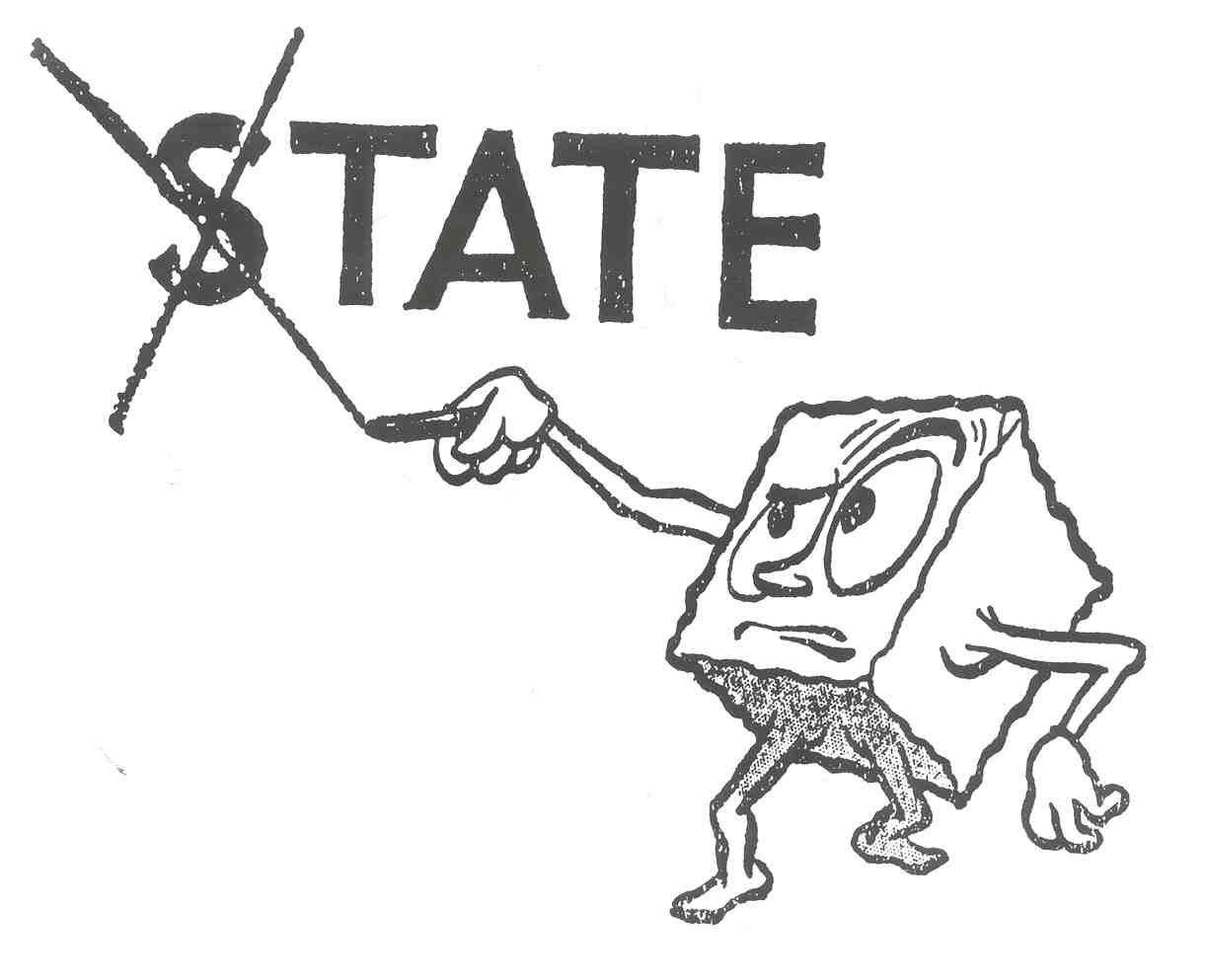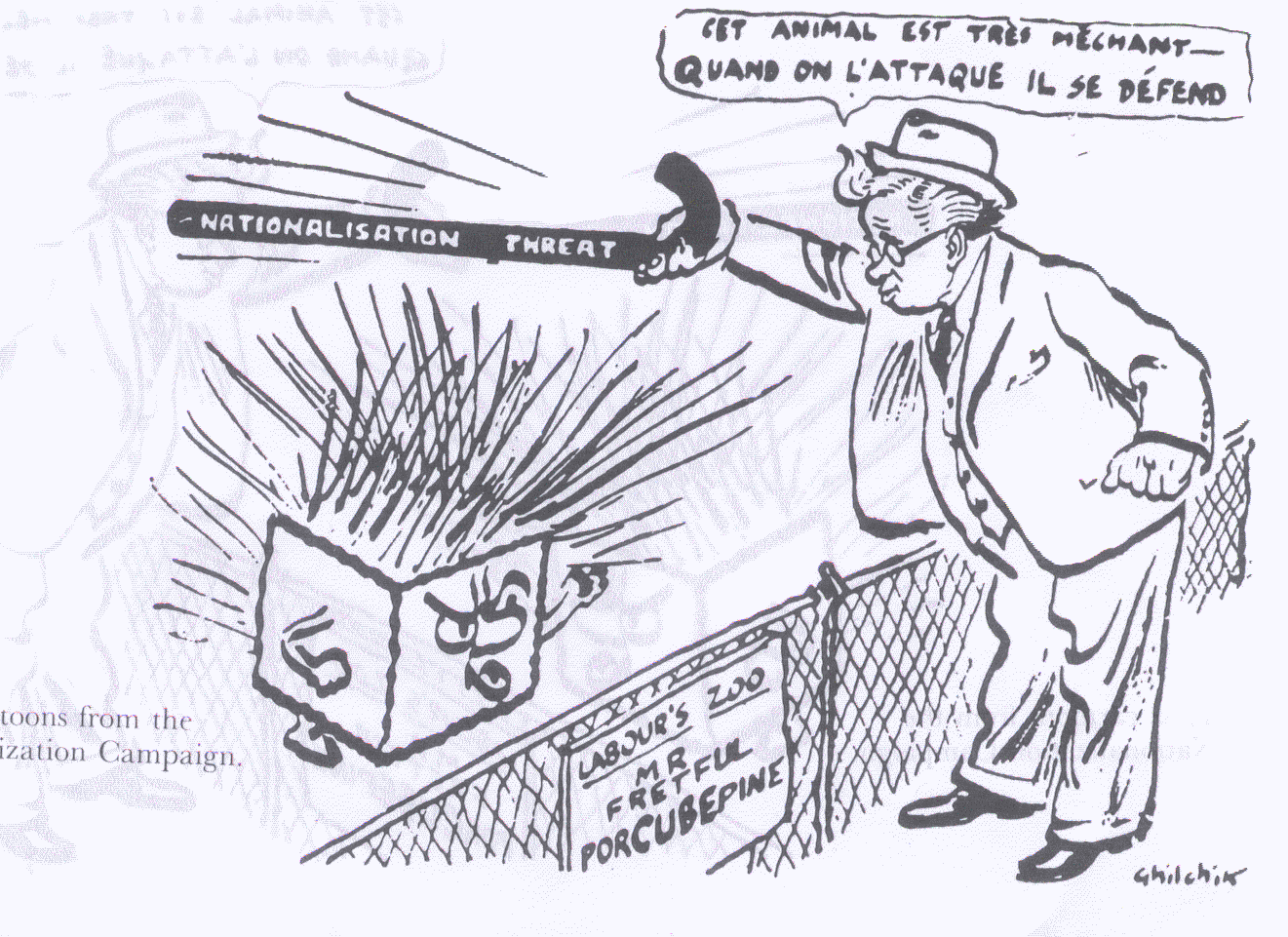Love Lane Lives
The history of sugar in Liverpool and the effects of the closure of the Tate & Lyle sugar refinery, Love Lane
The Mr Cube General Election, February 23rd 1950
Written by Ron Noon at 17:10 on Sunday, February 23rd 2020
The weather when I woke up this morning was lousy but at least it brightened up later. Seventy years ago however on the 23rd of February 1950, “rain spread slowly eastwards…and by evening…was enveloping the whole country in a steady unrelenting downpour”. Weather in itself is hardly reason enough for 70th anniversary status but this was n’t just any other foul weather day. It was the day of the General Election called by Clem Attlee the previous month and unlike any previous or subsequent British General Election this one was decidedly also about sugar and in particular the psephological impact (statistical study of elections) of a campaigning sugar lump with squiggly arms and legs and a devastatingly effective repertoire of anti-socialist propaganda. This was the Mr Cube General Election and the unrelenting rain meant that there were sodden queues “outside town halls and schoolrooms all over Britain”. But when the polling stations closed for “the weary, wet tellers outside”, it was clear that this “had been a phenomenally heavy poll”.
Sugar! When Clem Attlee’s radical Labour government’s plans for nationalisation of sugar refining leaked out in early 1949, who except the Prime Minister could have guessed when Parliament would be prorogued and a General Election called? Who including Attlee could have imagined that a major influence on the eventual outcome of the election whenever it was called would be a cartoon sugar lump armed with the sword and shield of private enterprise, appearing for the first time in the Daily Express on July 28th 1949? He appeared on millions of Tate & Lyle (T&L) sugar packets advertising “Tate not State” and brazenly challenging electoral law and Inland Revenue regulations. His turbo charged public relations campaigning was aided by Aims of Industry (AOI) the “PR Storm Troopers” who helped organise a blitzkrieg of propaganda against this historic Labour Government.

Because AOI were registered as an educational charity the material was also sent out to schools! AOI believed in free enterprise and had been set up in 1942 when HG Starley of Champion Sparking Plugs Ltd called a meeting of top industrialists and warned them to be prepared to launch an offensive against socialism. It was sustained by contributions and support materialising from a variety of lucrative sources including Associated Electrical Industries, Cortalds, Doulton, English Electric, Ford Motors, Handley Page, Imperial Chemical, Rolls Royce, the Cement Marketing Foundation and of course Tate & Lyle.
Aims of Industry was a non-profit making PR organisation selling private enterprise ideals, so being registered as an educational body was cunning to say the least! Together with another PR group, The Economic League, they persistently refuted Labour allegations that they were political. This actually helped secure admission of its speakers and films to schools, churches and even armed forces study groups! For right wing propaganda to be purveyed as a legitimate educational project was especially galling to Socialists desperately needing to win the battle for hearts and minds when common cause and common sacrifice was impossible to recreate as vindication for a post-war world of “unnecessarily” prolonged austerity and shortage. Sydney Finer writing in 1956 suggested that AOI and similar groups were only non-political “in the technical sense…that they are not affiliated to the Conservative Party nor do they subscribe to or receive subventions from it”. They were “Specialized Propoganda Organizations of private Capital”, unfettered, unlike Government, by the “constitutionalist” dilemma over what to advertise and its financing from a restricted and constantly scrutinised public purse. Politically active client companies like Tates were always able to deny their politics precisely because of the success of this combative propaganda. Peter Shore a Labour MP sagely observed the fact that “propaganda for free enterprise reaches the public in a most effective way, for it does not appear to be propaganda or to have any connection with politics”.
Mr Cube also proved a very adept friend of the Conservatives (Leonard Lyle T&L company president was a former Tory MP and close friend of Winston Churchill) and of course all their supporters in Fleet Street. The help of a largely Conservative press in bloodying Labour’s nose in February 1950 was recognized by Anthony Hugill, who like Peter Runge a T&L director working alongside him, was another shrewd strategist in the campaign. His gratitude was extended to Government adversaries as they were the ones responsible “to a very great extent for the sudden and overwhelming success of Mr Cube”! Some of their assertions “on sugar refining” and “election expenses” had informed the public “to an extent which we could never have achieved without their aid, and all of this without having to pay them any plugging money”! Hugill reminisced in Sugar and All That (1977) how the anti-nationalisation campaign was “not T&L’s nor Lord Lyle’s but Mr Cube’s”. His psephological excess was remarkable in an era devoid of electronic and instant communication media, when mass communication meant the press and “BBC steam radio”.
All of this was happening long before the Prorogation of Parliament was announced on January 11th 1950 and despite the command from Leonard Lyle that Mr Cube “must always be a knight in shining armour” never “a psalm singing little bugger” History’s most famous sugar lump proved precisely that especially to Labour Deputy Leader Herbert Morrison. (Peter Mandelson’s grandfather.) H G Nicholas the electoral historian argued that “few British general elections…have cast their shadows so long before” and even Attlee’s pronouncement provided an “unusually long notice of dissolution”. The Conservatives claimed that “it was timed to embarrass all the private champions of industries threatened with nationalisation” who could no longer insist that “their propaganda was ‘outside’ the election”. It would not deter Mr Cube.

Those who waited up all night as the results came in included those in the Mr Cube campaign team. One of these was the man mentioned earlier, Anthony Hugill. He was a young Oxbridge engineer who had joined the Imperial Sugar Giant Tate & Lyle after the war, (awarded the Distinguished Service Cross, French Croix de Guerre, mentioned in dispatches). He recalled how “people sat up all night listening to the radio, cups of tea or glasses of something stronger at hand”. The Labour landslide of July 1945 seemed eons ago as the dream of a New Jerusalem was eclipsed by the everyday reality of austerity rationing, queuing and the conspicuous absence of the promised “sweet things in life”.
An excited Hugill was sat in the company boardroom with Peter Runge, a Tate & Lyle director who also figured prominently in“Mr Cube’s election campaigning”. There is however no mention in Sugar and All That, what they had in hand awaiting the dawn, but the Director’s exclamation, “by God we’re going to beat the buggers” does suggest a degree of alcohol induced over-optimism! Still a comeback from 186 in the first leg to 6, 70 yrs ago was a remarkable achievement for a Tory party that in 1945 had seemed in almost terminal decline.
Postscript:
AOI were dubbed an “underground Tory organisation” but this was technically incorrect. The Home Secretary Chuter Ede speaking in the House of Commons in December 1949 referred to a letter he had received from 48 Guilford Street, the Luton office of AOI which was “the side entrance to 58 Bute Street, a Tory Office”. A search for AOIs telephone number educed “the statement from directory inquiries that this organisation is not known to them” but “it is possible to obtain them by ringing Luton 4500 which is the same number as the Tory Office”! The Tories unlike Labour’s later problems with “deep entryist” Trotskyist organisations, left the side door open to covert friends.
Finally the famous political historian Peter Hennessy in NEVER AGAIN: BRITAIN 1945-51 provides sharp personal insight into the significance of Mr Cube. Nobody had perceived any problems with their sugar and syrup and all Labour’s manifesto did “was to stimulate a quite brilliant political advertising campaign” in which Mr Cube not only “brought political argument to every breakfast table in the land” but was “almost certainly my first encounter with politics”!